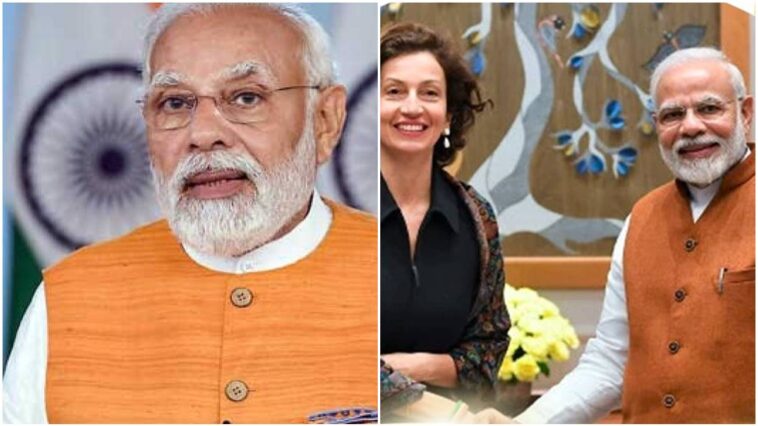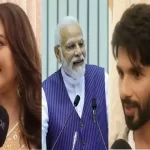On Sunday,UNESCO Director-General sends message for Special Book on 100th episode of Mann Ki Baat. She stated that since the invention of radio a century ago, the statement “the medium is the message” has never been more accurate.
“The Prime Minister’s Mann Ki Baat program is undoubtedly one of the most renowned, with hundreds of millions of listeners in over 50 languages and dialects. However, this book is also a testament to the immense power of radio to bring people together,” she writes in the 100th episode of Mann Ki Baat Special Book’s introduction.
She stated that this book is an opportunity to honor a radio heritage landmark and to encourage everyone to commemorate radio and its values.
For these reasons, UNESCO commemorates radio annually on February 13, World Radio Day, and also through publications such as this one.
“With radio, never before has it been so true that the medium is the message,” her message stated.
Since its invention one hundred years ago, radio has been a part of everyone’s life. From AM and FM to long wave and now digital radio, web radio, and podcasts, its accessibility is expanding. It is a genuinely global medium,” she said in her message.
“Radio also conveys a message of closeness, affinity, and diversity. There may be no other medium that offers the same breadth of content and programming, diversity of opinions and cultural manifestations, and availability of languages,” the message continued.
She stated that this is what makes Radio such a valuable ally in times of crisis. UNESCO harnessed this potential in sub-Saharan Africa, creating a pedagogy via the frequencies for children isolated and deprived of an education due to the Covid pandemic. And we continue to use radio to educate, for instance in Afghanistan, where we collaborate with local stations to disseminate health and security-related content to millions of young Afghans.
Also read this:Karnataka: PM Modi holds roadshow in Mysuru
The UNESCO DG message continued by stating that radio conveys a message of freedom because it is a window to the world. A century after its invention, radio remains one of the most reactive and engaging media, providing new opportunities for interaction and participation in meaningful conversations, particularly for the most disadvantaged. And UNESCO is committed to ensuring that this remains the case by defending press freedom and media diversity.




